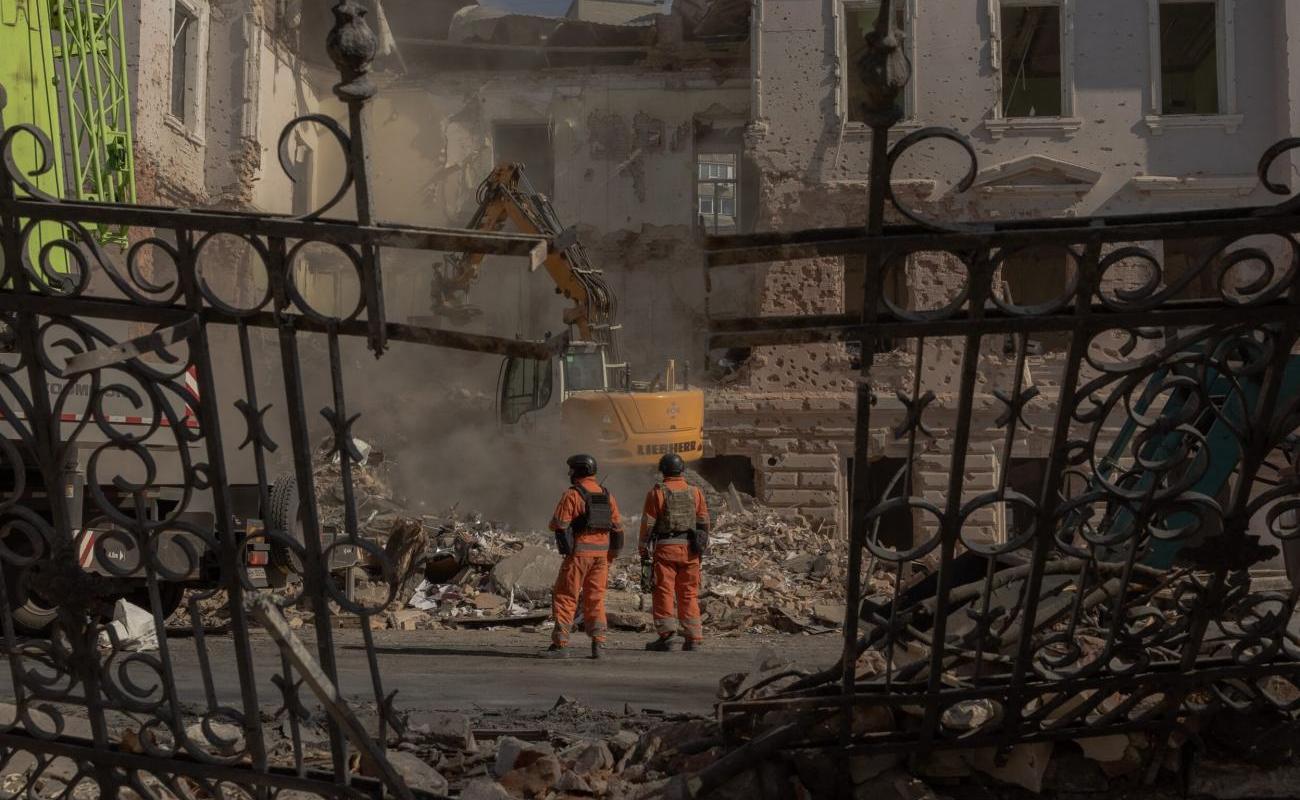Russian attack that left bodies scattered on city streets is not a ‘mistake’ — it’s a strategy

But terror-bombing Ukrainians may not bring Russia many benefits.
KYIV — U.S. President Donald Trump described Russia’s double ballistic missile strike on the Ukrainian city of Sumy that killed 35 and wounded 117 as a “mistake” by the Russians.
But it’s no such thing.
The Sunday attack on Sumy, like the April 4 strike on Kryvyi Rih, where a Russian ballistic missile filled with cluster munitions killed 20 people and wounded 80, is actually part of a Russian military strategy. The aim is to terrorize the civilian population and turn them against the Ukrainian military and government, forcing them to sue for peace with Moscow.
“Russia wages total war against Ukraine,” said Mykola Bielieskov, a military analyst and research fellow at the Ukrainian National Institute for Strategic Studies.
“The goal of [this] total war is to force civilians to create pressure on the Ukrainian authorities to negotiate [a] settlement on Russia’s terms. So far [the] Russians [have] failed, but they believe there’s a tipping point beyond which civilians will begin to direct their hatred not at the Russian Federation, but at our government,” he added.
It’s a tactic that countries have used against each other since the advent of air warfare in the 20th century, but there are few if any examples of terror bombing being effective in getting civilians to rebel against their government; usually, the response to such attacks is the opposite.
Blaming their own
However, the Russian attacks are highlighting strains in Ukrainian society as the war drags into its fourth year.
After the attack on Sumy, Mariana Bezuhla, an opposition MP, accused the Ukrainian military of endangering civilians by holding an award ceremony for soldiers in Sumy despite knowing about the upcoming Russian attack. The soldiers were unharmed as they were in a shelter.
Artem Semenikhin, mayor of Konotop, a town in the Sumy region, accused the local governor of planning a ceremony for a local military brigade. He added that by doing so, the governor had helped Russia justify “a genocidal attack on us, Ukrainians.”
Russia is using the presence of troops in the city to legitimize an attack that has drawn international condemnation. The Russian defense ministry confirmed it used two ballistic missiles against Sumy, saying it targeted a “gathering of Ukrainian military command,” killing 60 soldiers. Moscow accused Kyiv “of once again using civilians as human shields.”
Ukraine’s General Staff issued no statement on whether soldiers were in Sumy, but also claimed Moscow was targeting civilians and promised retaliation against the Russian military.
Whether or not troops were present in Sumy, Russia has used similar language to justify its other attacks on Ukrainian cities, Bilieskov said.
Blaming the military means falling into Russia’s trap of trying to separate the army from civilians, said Tetiana Troshchynska, a prominent Ukrainian journalist. She said the massacre was meant to demonstrate to the population “that if not [for] the military, we would not attack you!”
“It’s your fault, enemies tell us. And if we also start blaming our military instead, this will mean we lost,” Troshchynska added.
Russian targets
Understandably, Ukraine is treating Moscow’s comments with caution, recalling that in many cases cities are attacked for no military reason. In Kryvyi Rih, for example, Russia’s claim to have struck a gathering of NATO officers in a restaurant was shown to be a lie by France24, which showed footage with only staff inside the building at the moment of the attack.
So far, such total war tactics have not had the effect the Kremlin hoped, Bielieskov said. But there is a growing sense among civilian Ukrainians that being close to soldiers can be dangerous.
Because of frequent Russian attacks, the Ukrainian military no longer houses its troops in barracks. Soldiers instead live in normal apartments, but find such quarters hard to rent as many locals fear being hit by a Russian missile or drone if they open their doors to the military.
“[On] the front lines it is almost impossible to find a house. Upon arrival at the concentration point, you often had to huddle either in destroyed houses or in cars,” a Ukrainian soldier who only identified himself by his first name, Andrii, told POLITICO.
“The main reason I heard from those not letting us rent a house was: ‘A missile will fly here because of you! We don’t need this,’” Andrii added.
